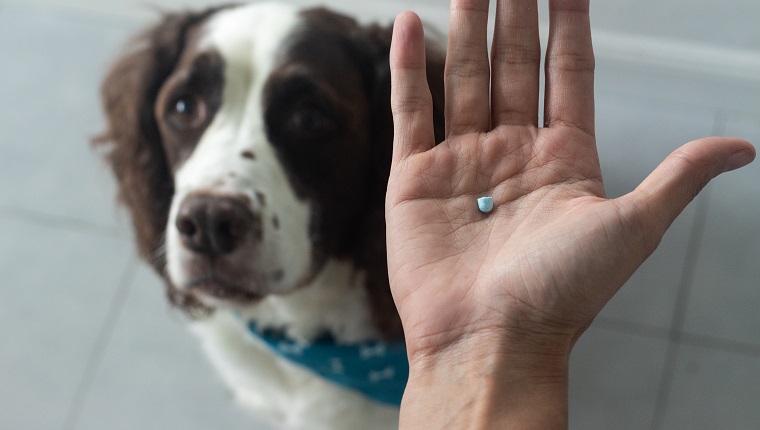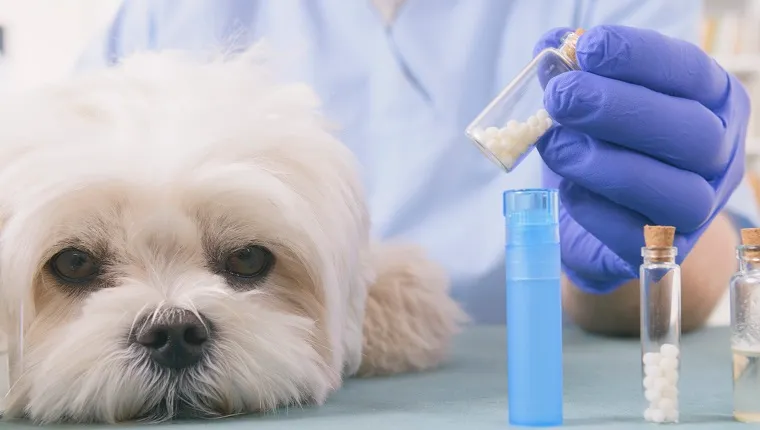Amphetamine poisoning in dogs is a condition that arises when a dog manages to ingest amphetamine-based medication or drugs. It can produce a range of symptoms and, in some cases, can cause seizures.
Along with being prescribed to humans to treat conditions including ADHD and weight loss, amphetamines are also sold illegally in the form of drugs like ecstasy, crystal meth, and speed.
If you see signs that your dog might be suffering from amphetamine poisoning, then you must consult your veterinarian for a proper diagnosis and course of treatment. Here’s what you should know about the symptoms, causes, and treatments of amphetamine poisoning in dogs.
Symptoms Of Amphetamine Poisoning In Dogs
Amphetamine poisoning in dogs can produce a range of symptoms depending on both the dog and the amount of amphetamines consumed. Some of the most common symptoms include:
- Panting and drooling
- Vomiting
- Diarrhea
- Seizures
- Suffering from tremors
- Becoming aggressive or hyperactive
- Pupils dilating
Causes Of Amphetamine Poisoning In Dogs

Amphetamine poisoning in dogs usually happens when a canine consumes drugs that have been either left out in the open or maybe dropped accidentally on the floor.
Humans often take these drugs in the form of prescription medications to treat conditions including weight loss and ADHD.
It’s always important to make sure that you keep any drugs your doctor prescribes safely out of the reach of pets — and children too.
Treatments For Amphetamine Poisoning In Dogs
If you notice that your dog has managed to consume some amphetamines, it’s vital that you visit your veterinarian straight away. Your vet will ask about your dog’s general medical history. They’ll also want to ask about what sort of amphetamines your dog has ingested.
It’s important that you tell your veterinarian the truth about what your dog has consumed, whether it is an illegal substance or legally prescribed. Your vet needs to know in order to properly treat your dog.
After conducting a physical examination to look for signs of poisoning, your vet might also suggest taking a blood test to confirm a diagnosis; although in some cases, it can take a few days for any test results to be confirmed.
For treatment, some vets might attempt to make the dog vomit. This can help eject any traces of amphetamines from their system. They may also suggest pumping the dog’s stomach.
Sometimes, vets will use an intravenous drip to help flush out traces of amphetamines, along with keeping the dog hydrated.
Has your dog ever accidentally ingested medicines with amphetamines? How did your vet help your dog recover? Tell us all about it in the comments below.









